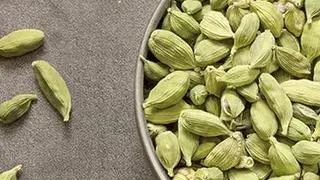The demand for Fair and Remunerative Price (FRP) for milk is gaining momentum in Maharashtra. The State government is finding it difficult to intervene in the matter as the majority of the dairy sector is controlled by private players and the cooperatives have reported losses for the last two consecutive years.
The selling price of milk is decided by the private and cooperative dairies and is not controlled by the government. The selling price comprises the milk procurement price paid to the farmers (including the cost of production) and the cost of processing and marketing. According to the Union government, about 74 per cent of the sale price of milk is transferred to the farmers as procurement price.
However, Maharashtra dairy farmers have demanded that on the lines of FRP for sugarcane, milk should also have FRP. The sugarcane FRP is fixed by the government on the basis of the recommendations of the Commission on Agricultural Costs and Prices (CACP).
The making of dairy industry professionals
Why FRP?
“The private and cooperative milk bodies decide procurement rates as per their wish. There is no basis for the fixing of milk price. Especially during the lockdowns, farmers sold milk at ₹15-18 per litre to milk bodies. The fixing of milk price must not be arbitrary. It should have a formula,” says Zhunjrrao Patil, a farmer from Sangli.
Another milk farmer Vikas Waghmode said that many farmers have shifted to full-time dairy farming instead of cultivation. Waghmode said that FRP will ensure that dairies will not be able to manipulate prices.
Milk farmers say that the input cost in dairy farming has multiplied, but the procurement rates remain the same for years.
In June, the State government had assured dairy farmers that it will look into the FRP demand. However, State sources said that cooperative and private milk bodies are averse to the FRP saying that it will disturb the established fabric of the milk industry.
Amul@75: Utterly butterly strong
Co-operative and private players
Of over 12,000 co-operative dairy societies in Maharashtra, 5,056 societies reported a collective loss of ₹68.72 crore in 2020. In 2019, same number of dairy cooperative societies had reported a loss of ₹69.83 crore, according to the State Economic Survey.
The milk procurement by private dairies in Maharashtra is about 123-127 lakh kg per day (LKPD), while cooperatives procure 36-38 LKPD, according to the CRISIL Research Data. There are 263 cold storages with a capacity of 17,494.40 tonnes, of which 247 cold storages with a capacity of 17,175.65 tonnes were with the private sector in 2019-20.
The State ranks seventh in milk production and per capita availability of milk in the State is 266 gram per day against 394 gram per day at the national level.
One of the prominent private players in the sector said that the dairy industry was opened up for the private sector in 1992 and private players used their own risk capital without any subsidies or loss write-off by State governments and contributed to the dairy sector development. Private players have expressed their concerns to the State that it should not disturb the market mechanism in procurement for cooperatives and private dairies by taking any drastic step.







Comments
Comments have to be in English, and in full sentences. They cannot be abusive or personal. Please abide by our community guidelines for posting your comments.
We have migrated to a new commenting platform. If you are already a registered user of TheHindu Businessline and logged in, you may continue to engage with our articles. If you do not have an account please register and login to post comments. Users can access their older comments by logging into their accounts on Vuukle.